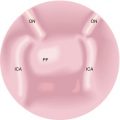John C. Watkinson and David M. Scott-Coombes (eds.)Tips and Tricks in Endocrine Surgery201410.1007/978-1-4471-2146-6_29
© Springer-Verlag London 2014
29. Outcomes and Audit in Endocrine Surgery
(1)
Department of Otolaryngology, Head and Neck Surgery, James Cook University Hospital, Marton Road, Middlesbrough, UK
(2)
Department of Endocrine Surgery, University Hospital of Wales, Heath Park, Cardiff, CF14 4XW, UK
Abstract
Clinical audit should be an integral part of all practicing surgeons’ activities. To support audit in surgery, consideration is made of what makes a good audit and the steps needed to undertake it – finding and setting standards, data collection, analysis and interpretation, and action on audit results.
Introduction
Clinical audit should be an integral part of all practicing surgeons’ activities. To support audit in surgery, consideration is made of what makes a good audit and the steps needed to undertake it – finding and setting standards, data collection, analysis and interpretation, and action on audit results.
Why Audit Outcomes?
To comply with Good Medical Practice – practitioners should take part in regular and systematic audit.
Meeting Good Surgical Practice – surgeons should be aware of their results in their surgical practice.
Surgeons should audit benchmark and share their results with peer groups and seek advice if there is a major discrepancy in their performance.
Contribute in resolving uncertainties about the effects of treatments.
Audit should not be confused with research. For audit the outcomes (whether qualitative or quantitative) are measured against a defined standard.
What Makes a Good Audit?
Prior careful consideration of an aspect(s) of surgery that is measurable and in which a change/improvement in practice will be beneficial.
Formulating a question(s) as simply as possible to aid clarification to others.
Deliverable within available resources (people, time, IT).
In gaining local support, an alignment with an organization’s audit priorities and early registration with the hospital clinical audit department can pay dividends both in help and quality.
Stay updated, free articles. Join our Telegram channel

Full access? Get Clinical Tree





